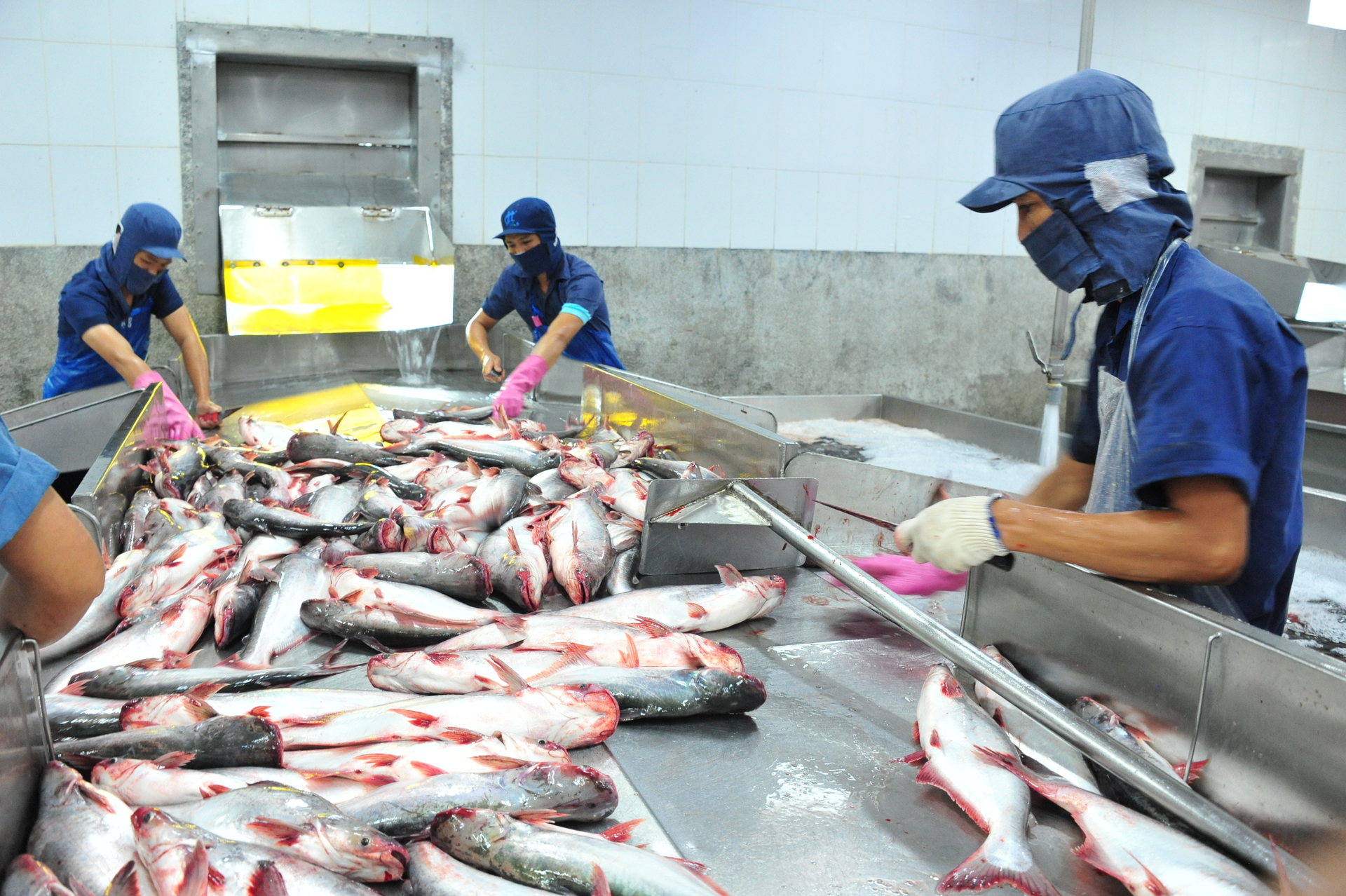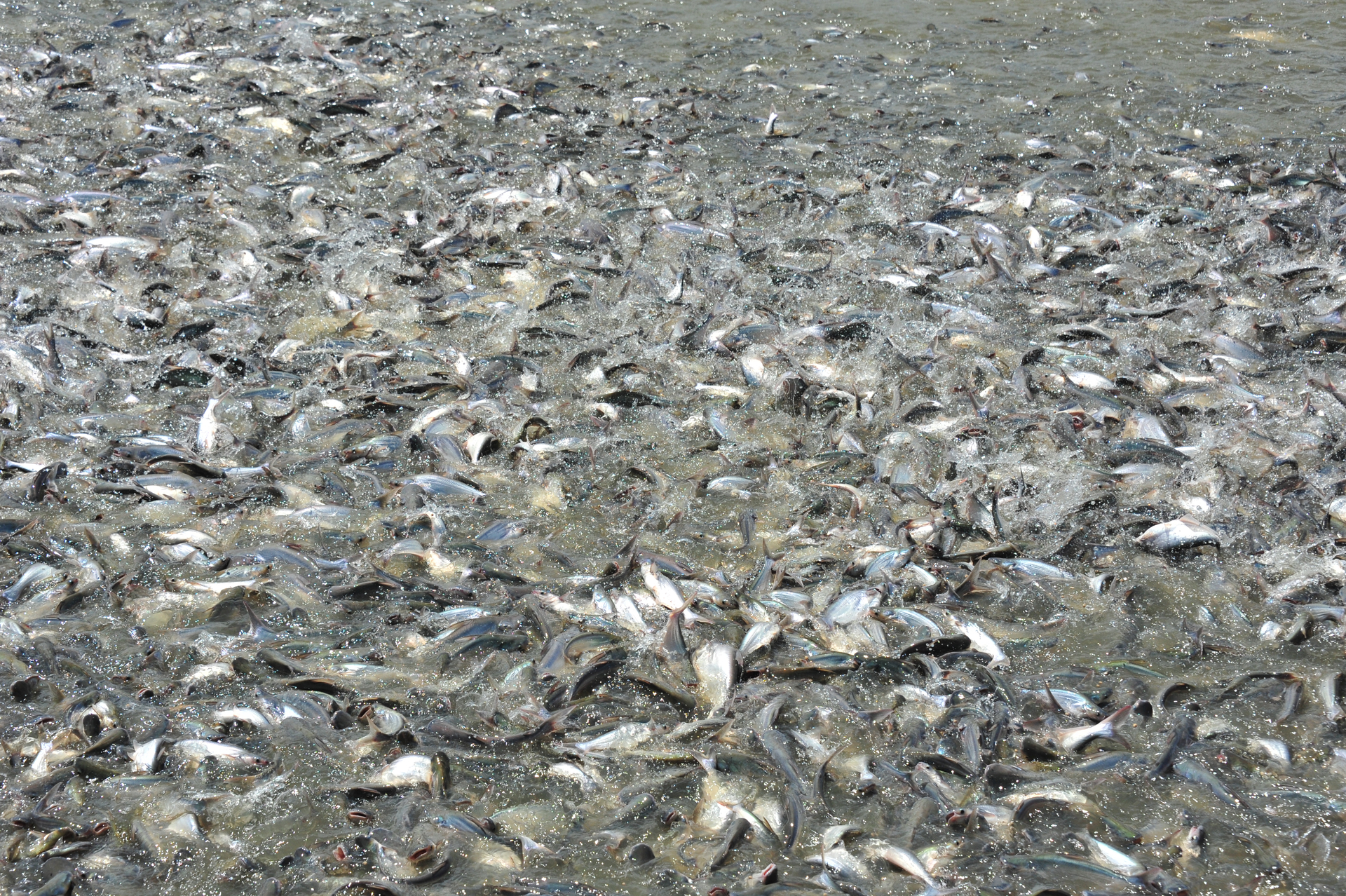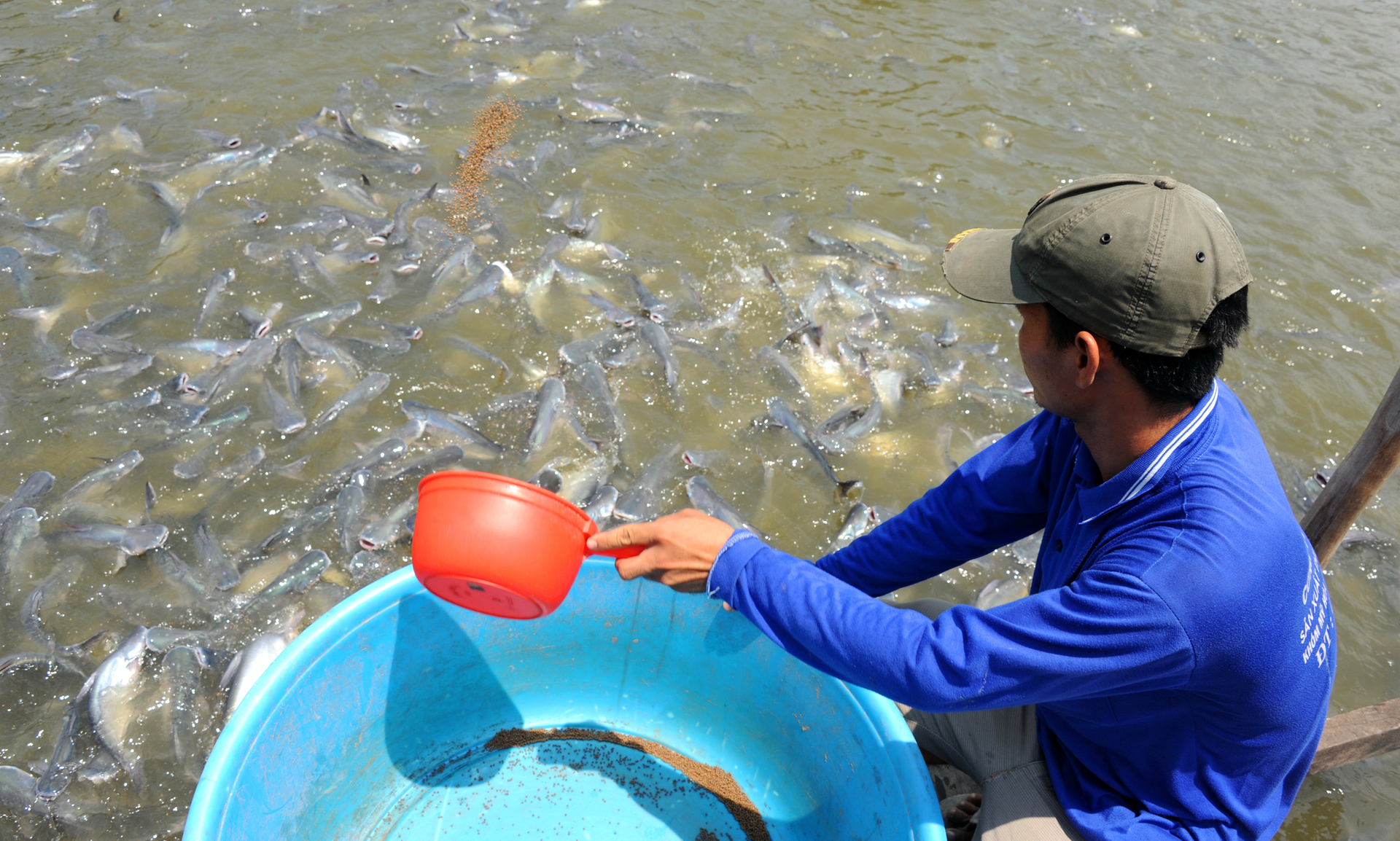November 23, 2025 | 21:30 GMT +7
November 23, 2025 | 21:30 GMT +7
Hotline: 0913.378.918
November 23, 2025 | 21:30 GMT +7
Hotline: 0913.378.918

Businesses must have a market, which is a prerequisite for this industry to succeed. Photo: Le Hoang Vu.
The story is that the pangasius industry in the Mekong Delta has faced many difficulties in exporting products abroad for many years. It once again shows that for this industry to develop stably and sustainably in the coming time, one of the prerequisites in planning a development strategy is to start from the market.
An Giang is one of the leading localities in developing the pangasius farming and processing industry for export, with an annual farming area of nearly 1,800 hectares, yielding over 400,000 tons. The province currently has 20 enterprises with 23 pangasius processing factories, processing capacity reaching 323,420 tons/year. In the first 9 months of 2023 alone, businesses in the province have exported 162,000 tons of pangasius products, earning foreign currency of US$ 400 million, up 1.8% in volume and 2.3% in turnover compared to last year.
This data shows that the pangasius industry still has much potential for development. First, the pangasius farming area in An Giang is nearly 2,000 hectares, while 23 factories' processing capacity continuously increases and meets export demand.
Second, the advantages of water resources, climate, soil, and production experience are huge, so An Giang's agricultural industry will continue to develop in the coming time and promote the application of scientific and recently started technical advances in farming pangasius to achieve good products for export, helping local businesses, cooperatives, and farming households profit.

Raising pangasius for export in the Mekong Delta. Photo: Le Hoang Vu.
According to cooperatives raising pangasius for export in An Giang for a long time, it is better to grow less and sell at a higher price than to raise a lot and sell slowly and at a low price. Farmers need to have a mechanism to control the price of animal feed and aquatic veterinary medicine so that farming costs do not fluctuate as much as they do today. An Giang and Dong Thap are two localities that are continuing to promote the implementation of the 3-level Pangasius Breeding Program so that businesses and farmers raising pangasius have enough healthy, disease-free fingerlings, helping the survival rate of Pangasius fingerlings get better and better.
Mr. Doan Toi, General Director of Nam Viet Joint Stock Company, said: The market mentioned here is, first of all, the product consumption market (including domestic and foreign), food market, veterinary medicine, seafood, and pangasius seed market. This is an important market to implement the industry value chain we have worked on for many years.
According to Mr. Doan Toi, based on market forecasts, businesses, and pangasius farmers organize production to meet demand. This is a scientific way. On the one hand, it reflects the production level of businesses and farmers in international economic integration. On the other hand, it helps customers stabilize distribution plans and develop new markets. The input will be stable if we follow the collaborative business method between businesses and farmers. The output will be challenging. The pangasius industry will not have to witness the chorus of "good harvest - loss of price, good price - loss of crop".

Currently, food prices have increased 2-3 times higher than before. The average white meat pangasius production cost is VND 26,850 - VND 27,000/kg, the average selling price to traders is VND 26,300 - VND 26,500/kg, Pangasius farmers can lose from VND1,000 - VND 1,500/kg. Photo: Le Hoang Vu.
According to an opinion from another business in the pangasius industry in the Mekong Delta, the reality of this industry is that, over the past many years, sometimes commercial pangasius prices have increased to the highest price of VND 32,000 - VND 35,000/kg or more In October 2022, people had no fish to sell. Immediately the farming area in the area increased rapidly, causing an imbalance between supply and demand. That year, the entire Mekong Delta region raised over 6,000 hectares (an increase of 500 hectares compared to the same period in many years). An Giang raised 2,100 hectares, and Dong Thap's pangasius farming area increased to 2,500 hectares. Especially when the Russia-Ukraine conflict broke out, and the world entered a global economic recession, the consumption of pangasius became extremely difficult because consumers always save money. Fishermen and businesses are currently trying to save money in a difficult situation and waiting for pangasius prices to increase again.
Currently, food prices have increased 2-3 times higher than before. The average white meat pangasius production cost is VND 26,850 - VND 27,000 VND/kg, the average selling price to traders is VND 26,300 -VND 26,500/kg, Pangasius farmers can lose VND 1,000 - VND 1,500/kg (on average, farmers lose about VND 250- VND300 million/ha/crop).
Mr. Nguyen Si Lam, Director of An Giang Department of Agriculture and Rural Development, said production must start from the market. This is a prerequisite for this industry to win many victories. To do that, it is necessary to continue to promote the role of industry associations, have a mechanism to control farming planning strictly, and, at the same time, build a mechanism to control the prices of feed and aquatic veterinary drugs on the market. In particular, the agricultural industry encourages pangasius farmers to link with businesses or farm for businesses to help this relationship develop sustainably and reduce the risk of loss.
Translated by Tuan Huy
/2025/11/21/4309-2-153400_128.jpg)
(VAN) Green and low-emission rice is paving the way for Vietnamese rice to enter high-end markets, marking the beginning of a transformation journey toward greening and elevating the national rice brand.

(VAN) ‘Right to Win’ outlines a national action plan that shapes a new vision for Viet Nam’s agriculture in an era of renewal and global integration.

(VAN) Lam Dong’s farmed sturgeon output this year is expected to reach 2,300 tons, worth VND 450 billion, affirming the brand’s position on the market.

(VAN) A surge in Ukrainian egg exports, largely driven by soaring sales to the UK over the last few years, has notably pushed up egg prices on the domestic market.

(VAN) The price of Arabica Catimor coffee in Quang Tri is currently at VND 25,000–27,000/kg (fresh cherries), the highest level ever recorded

(VAN) 'From the coffee story, we can think deeper and further about the crop production sector - from development orientations and value-chain organization to international integration,' assessed Dr Le Quoc Doanh.
/2025/11/18/2431-0-161627_248.jpg)
(VAN) Viet Nam accounts for 43% of the world's export volume of Robusta coffee. However, the Vietnamese Robusta coffee brand has yet to gain broad recognition on the global market.